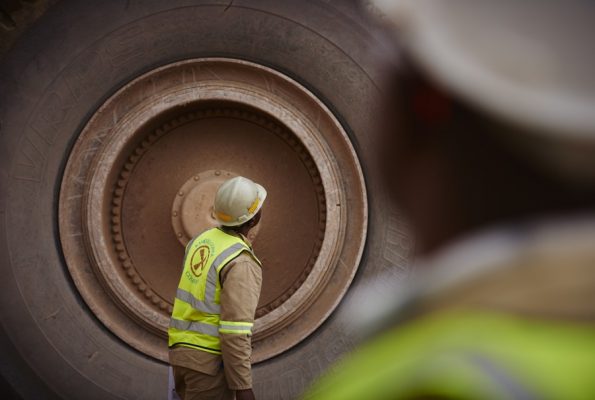Companies in the Democratic Republic of Congo will have to ensure subcontractors they hire are domestically owned under rules being implemented by the government.
The requirement adds to the raft of new measures mining companies have had to contend with over the past year, after the state in March 2018 raised taxes and other costs. Investors including Glencore Plc, Randgold Resources Ltd., China Molybdenum Co. and Ivanhoe Mines Ltd. operate in Congo, the world’s largest source of cobalt and a major producer of copper and other metals.
Congo’s subcontracting regulator, known as the ARSP, “will launch very soon a campaign to identify all companies that want to participate in subcontracting activities” before licensing them, according to a statement signed by Director-General Ahmed Kalej Nkand. All unauthorized companies “will be totally excluded from the market place.”
The reforms will require companies to verify that their existing subcontractors have made the necessary adjustments to their ownership structures, Vincent Rouget, senior Africa analyst at Control Risks, said in an emailed response to questions. “The reforms are designed “to promote the emergence of the Congolese middle class and protect the national workforce,” — Kalej
“We expect inspections to start in the next few months,” he said. “Several provisions of the law are still ambiguous, and it is very possible companies could be found non-compliant and subject to fines despite their best efforts.”
Congo adopted a law in February 2017 that reserved the subcontracting market in all sectors of the economy for companies majority-owned by Congolese nationals and headquartered in the central African nation. The legislation hasn’t been implemented until now because its oversight body, the ARSP, wasn’t established until last May, and management not appointed until December.
The reforms are designed “to promote the emergence of the Congolese middle class and protect the national workforce,” Kalej, who headed Congo’s state-owned mining company Gecamines from 2010 to 2014, said in the statement dated April 26.
The ARSP will be part-financed by a 5% levy on the value of every subcontracting agreement, according to a decree signed by Prime Minister Bruno Tshibala last year. The fee is to be paid by the company commissioning the work, which can pass the cost on to the subcontractor, Kalej said by phone from Congo’s capital, Kinshasa.
The new mining code that Congo passed last year confirmed that subcontracting in the mining industry will be limited “to companies of which the majority of capital is held by Congolese.” The 2017 law permits companies to contract foreign-registered or foreign-owned local subcontactors when they can demonstrate “an unavailability or inaccessibility of expertise” to the ARSP, as long as the work doesn’t last longer than six months._Bloomberg News





